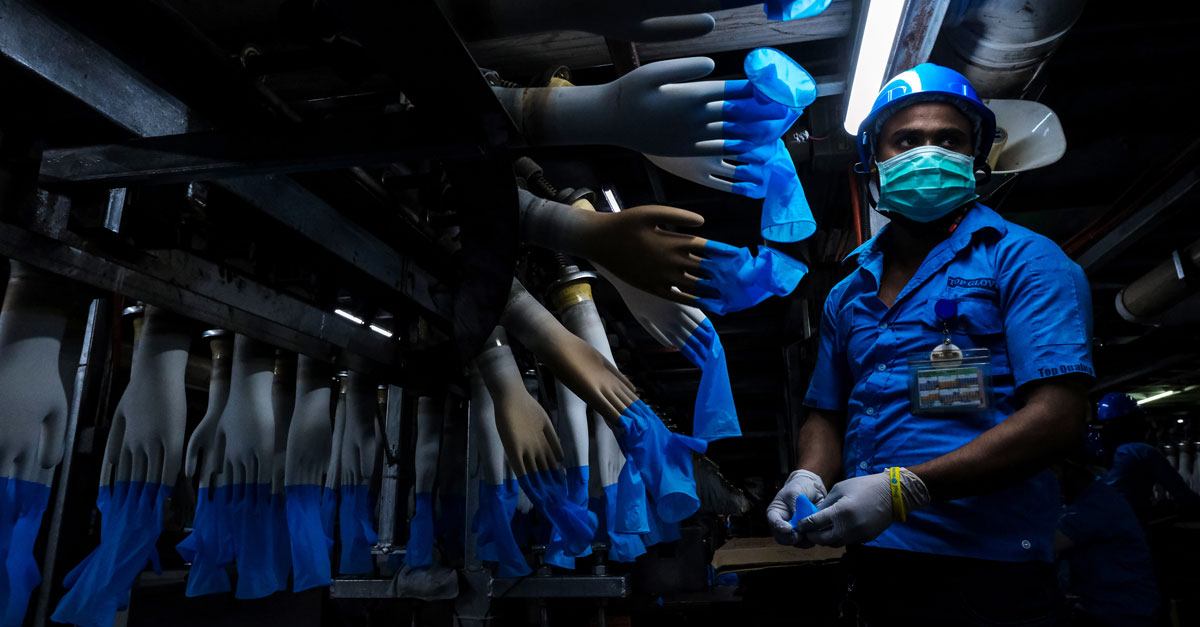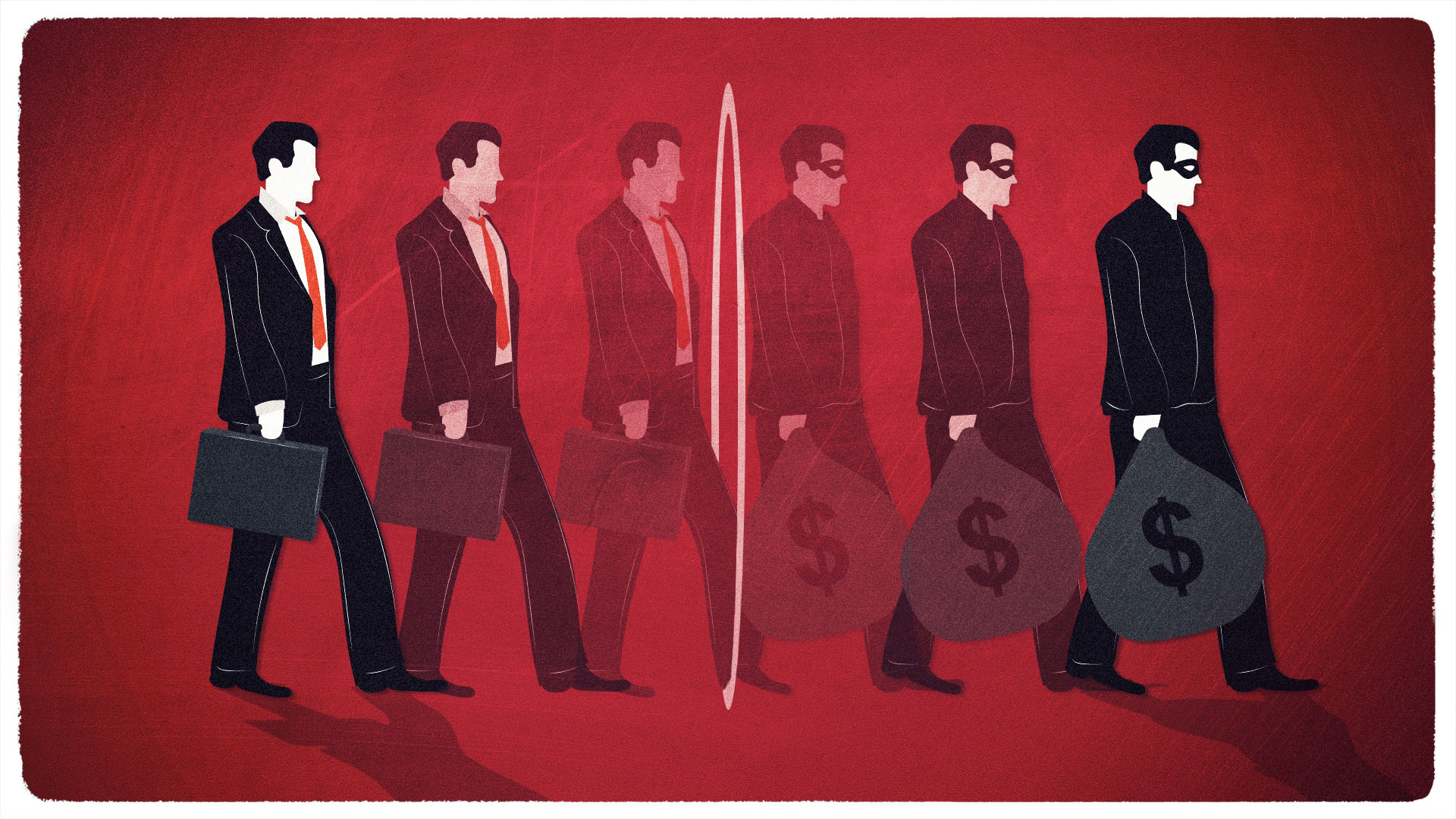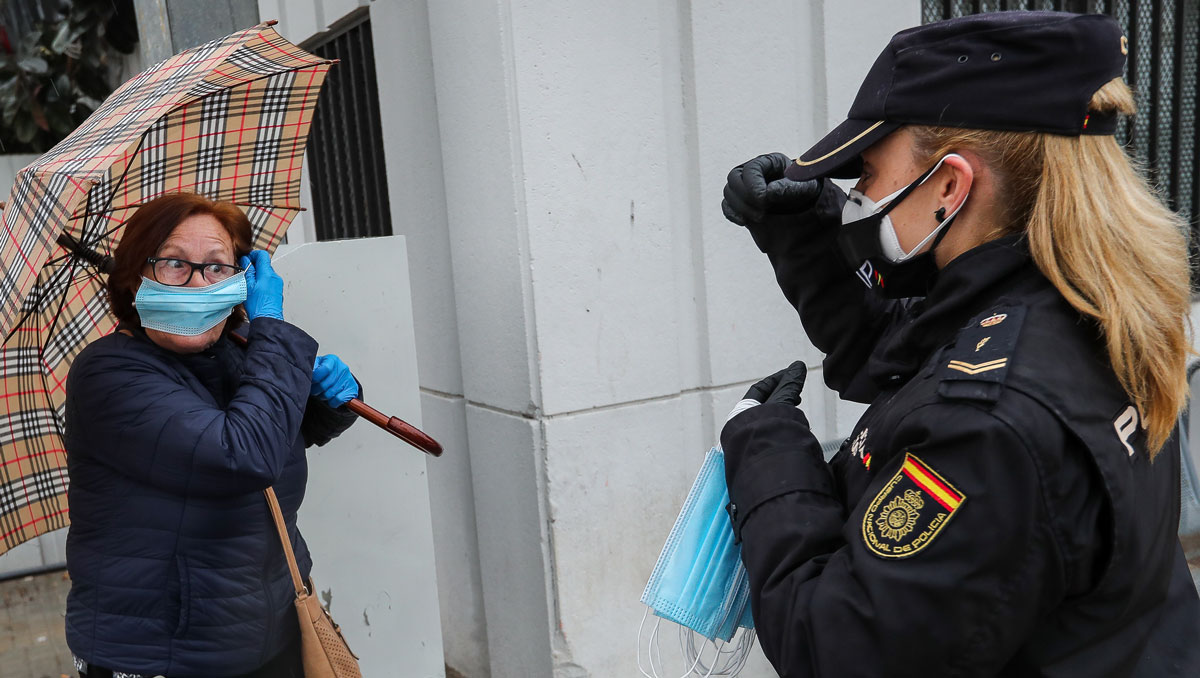ICIJ’s mission is to reveal injustice and hold the powerful to account. Do you know of someone exploiting the coronavirus crisis, or have another story to share? We’d like to hear it. (Ici en Francais, aquí en Español.)
The COVID-19 pandemic has exposed a rift between workers who can hunker down at home and continue to draw a paycheck and those who must work onsite. People in the second group — the nurses, factory workers, bus drivers, grocery store stockers — face an elevated risk of infection. But how much risk is too much? And what obligation do employers have to eliminate as much of that risk as possible?
As the pandemic takes its toll on workers’ health, journalists have been posing these questions, and coming up with disturbing results.
In New York City, which has more confirmed coronavirus cases than most countries, the transit agency was “late to distribute disinfectant to clean shared work spaces, struggled to keep track of sick workers and failed to inform their colleagues about possible exposure to the virus” the New York Times reported. More than 80 workers have died, almost all of them in the last few weeks. (The chairman of the Metropolitan Transit Authority has faulted the Centers for Disease Control and the World Health Organization for providing, he has said, bad guidance).
In Mexico, state oil giant Pemex hasn’t paid many of the contractors hired in 2019 and hasn’t provided them with health insurance, vacation, or other benefits, Quartz reported. Pemex workers said that the company provides hand sanitizer and body-temperature checks — but not masks or gloves. Social distancing measures aren’t in place, they said. Pemex didn’t respond to Quartz, but separately told reporters the company is committed to preventing the spread of coronavirus among its workforce.
Malaysia is home to some of the biggest suppliers of gloves that the Pemex workers — and millions of others — desperately want. Workers at Top Glove, a major player in the industry, have accused the company of failing to comply with measures to protect them, even as they make gear that would protect others. Photographs shared by employees with reporters for Free Malaysia Today show workers sitting next to each other on a crowded bus while others are huddled around two benches in the rest area of a Top Glove factory.
“We are working in the same conditions as before COVID-19,” a Nepalese worker told the reporters. “The work place is crowded. The company tells us to follow social distancing but I don’t see that being implemented. Buses are also not being sanitised.”
Top Glove denied the accusations and recently released a video showing the preventive measures taken at its facilities, including employees wearing light blue masks and purple gloves, and men in full protective gear and tyvek suits sanitizing the offices.
The company came under fire two years ago following reporting on harsh labor conditions imposed on its workforce – mostly immigrants from Bangladesh and Nepal.
Workers who belong to the so-called “gig economy” are also vulnerable to dangerous working conditions. As governments enforce lockdowns and businesses shut down, two billion people who work in the informal sector, accounting for 61% of the global workforce, are most at risk of losing their job and livelihood, according to the International Labour Organization.
In Spain, which has the world’s second largest number of COVID-19 cases after the United States, domestic workers have recently begun to speak up. Some told El Pais that they were fired through text messages or asked to clean people’s houses and take care of their elderlies without a mask or other protective equipment. Most of the workers are women and immigrants, with little recourse, El Pais reported.
Advocates also said that some of these domestic workers have been infected while others cannot oppose their employers for fear of losing their jobs. They also feel the government has lost sight of the country’s most fragile workforce. “This isn’t just abandonment,” one said, “what is happening is discrimination.”
Over the past few weeks, meat processing facilities owned by U.S. companies in Alabama, Tennessee, South Dakota and other U.S. states, along with several in Canada, closed after hundreds of workers became infected.
Cargill employees at a plant near Calgary told CBC News they are frightened to go to work and cited “elbow-to-elbow” working conditions in a facility they say is too crowded. Cargill has since announced it would temporarily idle the facility and encouraged all employees to seek testing.
Minorities and lower-income workers have been disproportionately affected. The president of a latino civil rights group told NBC that, at a plant in Iowa, line workers were still standing inches from each other, with plastic sheets separating them.
In April, at least three Latino employees working at a JBS meatpacking plant in Greeley, Colorado died from coronavirus. A worker told reporters for ABC, Denver, that employees would show up at work even if visibly sick, that there was not enough hand sanitizer or soap, and safe distancing rules were not enforced. JBS has said the company is working to prevent the spread of COVID-19 and has enhanced measures to keep workers safe.
On Friday, JBS announced it has reopened the Greeley plant after deep-cleaning the facility, installing a new ventilation system and physical barriers, and enhancing social distancing protocols. The company also plans to test symptomatic workers on site, according to a press release.
What are whistleblowers telling OSHA, the U.S. gov’t worker safety agency? Who knows. https://t.co/NMvLC4cbSi pic.twitter.com/9BogWqqGZp
— Ben Hallman (@ben_hallman) April 27, 2020
Since the outbreak began, American workers have filed thousands of complaints with the Occupational Safety and Health Administration, according to public documents first obtained by the Washington Post.
The records, now available for view on OSHA’s website, offer a snapshot of the anxiety coursing through health care facilities, distribution centers, hotels and other facilities, as workers are forced to come into close contact with patients, with customers or each other with insufficient protective gear.
“There were several employees (baggage handlers and customer service agents) with flu symptoms that were not sent home, exposing employees to illnesses,” reads a complaint from a worker at an airport.
“The Homecare Staff is not provided with appropriate personal protection equipment when instructed to perform non-essential home visits to their elderly patients with suspected COVID-19,” a hospice worker said.
“Employees given paper towel masks,” a rehab center employee said.
The documents didn’t include information on the employers’ response.



